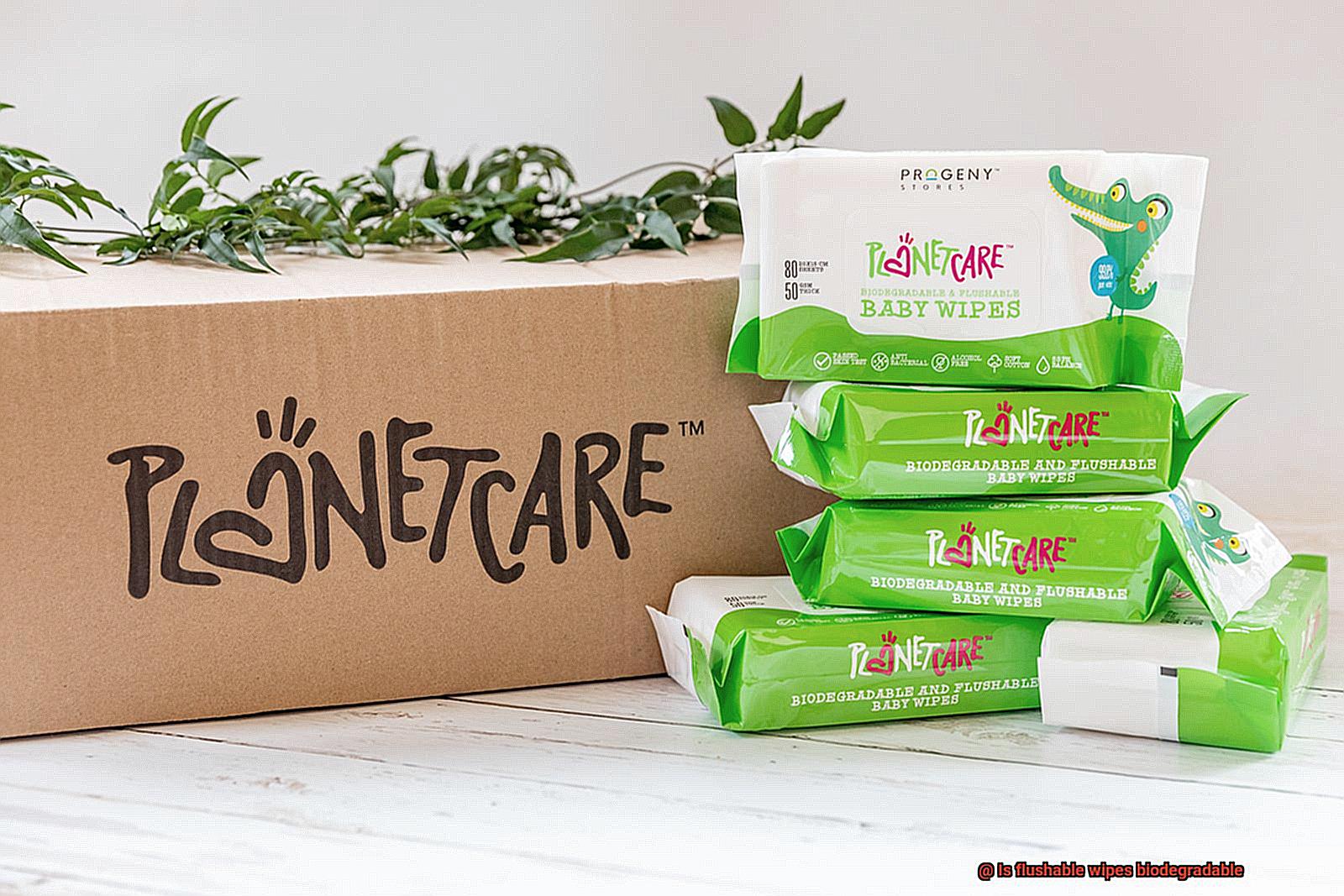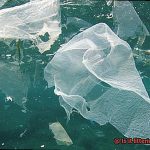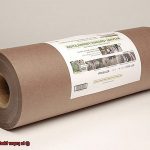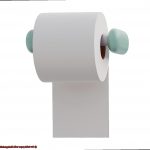Have you ever stopped to think about the environmental consequences of flushing wipes down the toilet? It’s a common practice, but is it really safe? The question of whether flushable wipes are biodegradable is a crucial one in our quest for a sustainable future.
At first glance, the term “flushable” might imply that these wipes will break down naturally in water. But the truth is far more complex. In fact, many so-called “flushable” wipes actually contain materials that can clog pipes and wreak havoc on sewage systems. This leads to costly repairs and negative impacts on the environment.
And even if these wipes do make it through the sewage system unscathed, they may not biodegrade as easily or quickly as we would like. Many brands use synthetic materials that can take years to break down, leading to significant pollution over time.
So what’s the verdict? Are flushable wipes truly biodegradable? The answer isn’t black and white. In this blog post, we’ll delve into what makes a wipe truly biodegradable, explore the impact of flushing wipes on our environment, and discuss steps we can take towards more sustainable choices. Let’s embark on this journey together and learn more about how our daily actions impact the world around us.
What are Flushable Wipes?
Contents
While they may seem like a convenient solution, these wipes can lead to serious problems when flushed down the toilet.
Flushable wipes are a type of wet wipe that is marketed as being safe to flush down the toilet. They are made from various materials, including cotton, rayon, and polyester, and are treated with chemicals to improve their texture, scent, and antimicrobial properties.
But there’s a catch: despite what the packaging may claim, flushable wipes are not truly biodegradable. Unlike toilet paper, which dissolves quickly in water, these wipes can take eons to break down. Consequently, they cause clogs in pipes and sewage systems, leading to costly and unpleasant blockages.
Think of it this way: flushing flushable wipes is like launching a plastic bag full of garbage into the ocean. Sure, it might vanish from sight for a while, but eventually it will fragment into smaller pieces that will pollute the water and harm marine life.
In fact, many cities and municipalities have banned the use of flushable wipes altogether. Instead, they recommend using toilet paper or investing in a bidet for personal hygiene needs. Alternatively, some manufacturers have started producing biodegradable wipes that are designed to break down more easily in water.
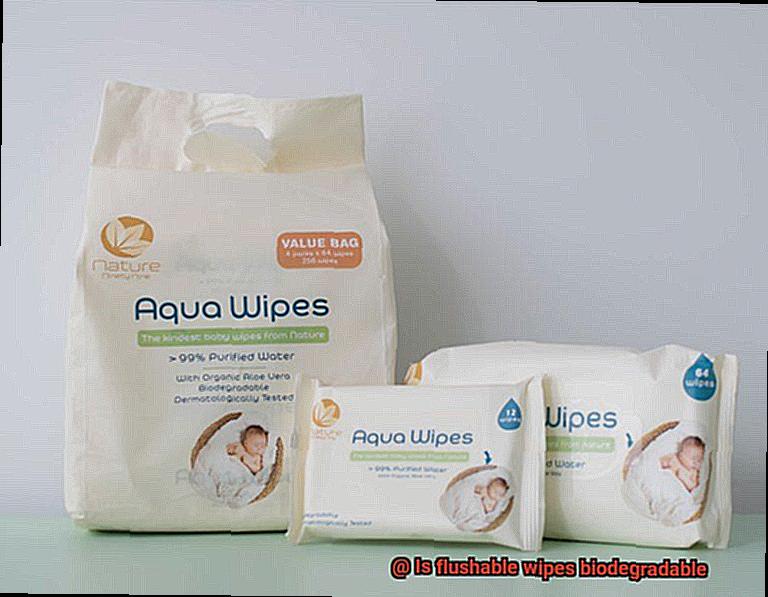
So if you’re looking for an eco-friendly solution for cleaning up messes, skip the flushable wipes and opt for reusable cloths or products that are specifically labeled as biodegradable and safe for flushing.
What Does “Flushable” Mean?
The problem with most flushable wipes is that they contain materials that don’t break down quickly in water, such as synthetic fibers or plastic resins. This means that the term “flushable” doesn’t necessarily mean that the product is biodegradable. In fact, there are no universal standards for what can be labeled as such. As a result, many of these wipes end up clogging pipes or causing harm to marine life.
This lack of regulation has led to confusion among consumers and raised environmental concerns. That’s why it’s essential to read labels carefully and do research before using any flushable products.
While some companies have developed more eco-friendly options, made from natural fibers that can biodegrade within a few weeks, it’s still important to exercise caution and make sure that these products are genuinely biodegradable and safe for the environment.
The Problem with Flushable Wipes
Let’s talk about the problem with flushable wipes. While they may seem like a convenient and hygienic alternative to toilet paper, they are not as “flushable” as advertised.
Unlike toilet paper, which is made from biodegradable materials, flushable wipes contain synthetic materials such as polyester and polypropylene that do not break down easily in water. This can cause blockages in pipes, leading to costly repairs for homeowners and municipalities. Think of it like a clogged artery in your plumbing system, caused by the buildup of these non-degradable wipes.
But it doesn’t stop there. When flushed down the toilet, these wipes can make their way into our rivers and oceans, polluting the water and harming marine life. It’s like hosting a party in your toilet and inviting all your synthetic wipe friends, without considering the negative impact on our environment.
To make matters worse, many manufacturers market their flushable wipes as biodegradable and safe for flushing. However, studies have shown that these claims are often misleading; flushable wipes are not truly biodegradable. It’s like a trap – they lure us in with false promises of convenience and safety, but end up causing harm instead.
Fortunately, as consumers, we have the power to make more informed choices about the products we use in our homes. Instead of flushable wipes, consider eco-friendly toilet paper or even a bidet as an alternative. By making more conscious decisions about our daily activities, we can reduce our environmental impact and make a positive difference.
Environmental Impact of Flushable Wipes
We’re delving into the world of flushable wipes and their surprisingly negative impact on our environment.
Despite their advertised biodegradability, flushable wipes are made of non-woven materials that don’t easily break down in water or natural processes. This leads to pipes and sewage systems getting clogged, which can be costly to repair and detrimental to our planet.
However, the damage doesn’t stop there. When flushed wipes end up in our waterways, they pose a significant threat to marine life. These wipes can entangle animals and cause injuries or even death. As they break down into microplastics, aquatic organisms ingest them, and they eventually make their way up the food chain. This poses a considerable risk to human health since we consume seafood that may have ingested these harmful microplastics.
Moreover, the production process of flushable wipes has an adverse environmental impact. The manufacturing of synthetic fibers and plastics used in these wipes requires large amounts of energy and produces greenhouse gases that contribute to climate change. The harsh chemicals used in the manufacturing process can also lead to water pollution and soil degradation.
So what’s the solution? It’s simple – ditch the flushable wipes and opt for more eco-friendly options like toilet paper or a bidet. Remember, just because something is labeled as “flushable” doesn’t mean it’s good for the environment or your plumbing.
Plumbing System Impact of Flushable Wipes
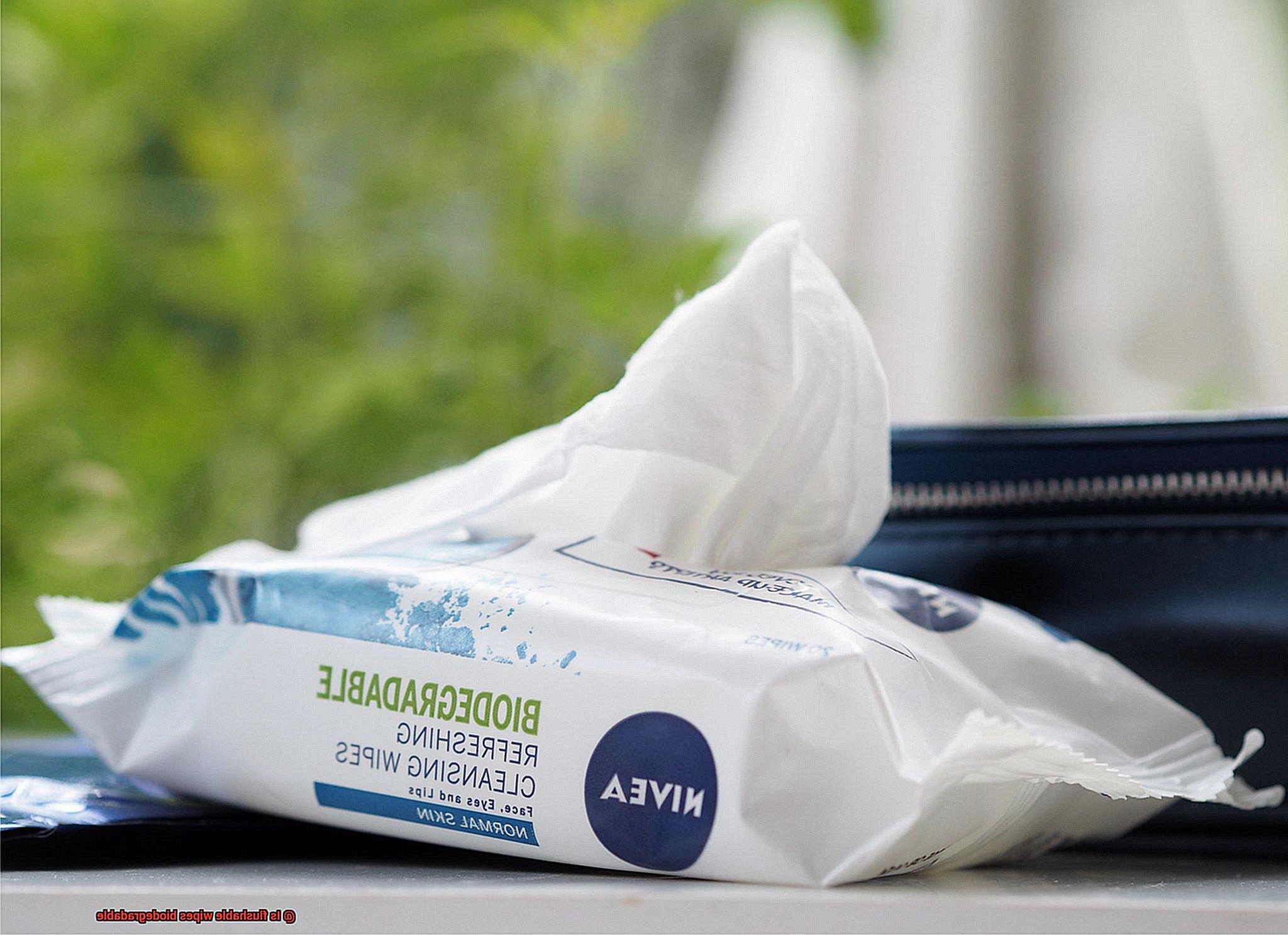
While these wipes may seem like a convenient option for maintaining hygiene, they can actually cause serious damage to our plumbing systems and the environment.
When you flush a flushable wipe down the toilet, it doesn’t break down like traditional toilet paper. Instead, it can get caught in pipes and cause blockages, leading to costly repairs. It’s like pouring cement down your pipes – not a good idea. In fact, many plumbing professionals advise against flushing any type of wipe down the toilet, including those marketed as “flushable.”
But that’s not all – flushable wipes can also contribute to the creation of fatbergs in sewage systems. These are large masses of congealed fat and non-biodegradable materials that clog up sewage systems and cause environmental damage. It’s like a traffic jam in your pipes that could have been avoided.
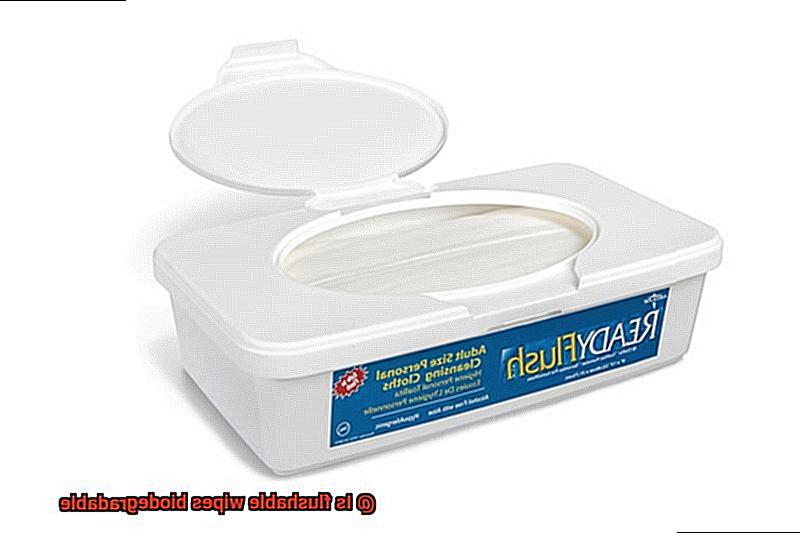
To prevent these issues, it’s crucial to dispose of flushable wipes properly by throwing them in the trash instead of flushing them down the toilet. By doing so, you are helping to protect your pipes and the environment from harm.
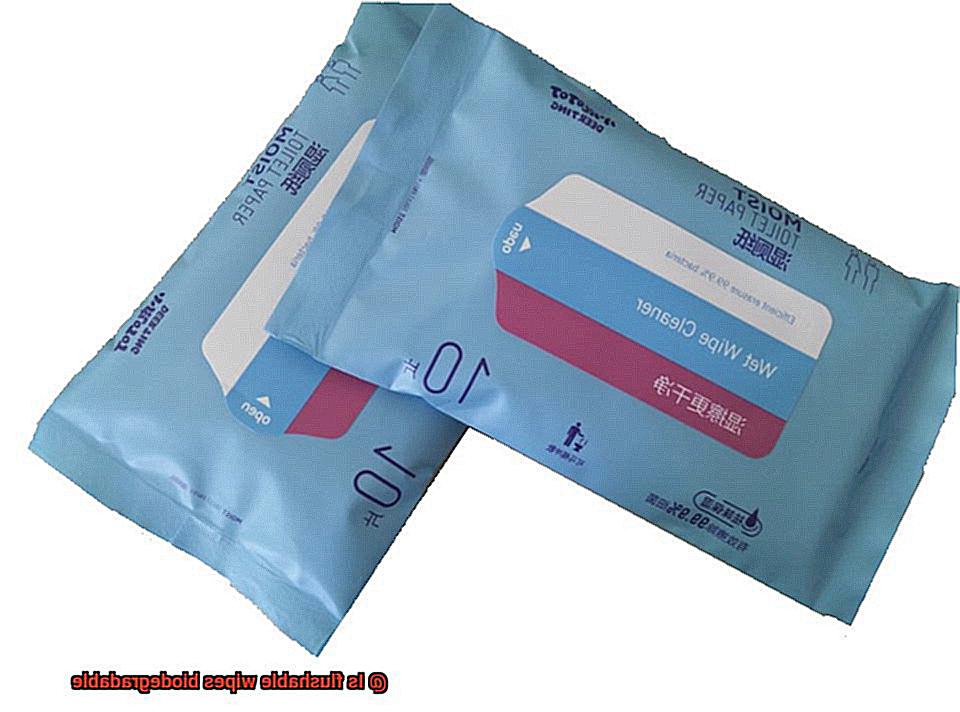
It’s also important for manufacturers to be transparent about the true biodegradability of their products so that consumers can make informed choices about what they choose to flush down the toilet.
Alternatives to Flushable Wipes
There are plenty of alternatives that are kinder to the environment and just as effective.
One option is reusable cloth wipes. These are easy to make from old t-shirts or towels and can be washed and reused multiple times, saving you money in the long run. Plus, who doesn’t love a soft cloth wipe? It’s a win-win situation.
If disposables are more your thing, don’t fret. There are eco-friendly options made from biodegradable materials such as bamboo or cornstarch. You can safely throw them away in the trash or compost them at home without harming the environment.
For those who want a more thorough clean without wipes, bidets or attachable bidet sprays are a fantastic alternative. Not only do they provide an effective and hygienic clean, but they’re also easy to install on existing toilets and can last for years.
Lastly, consider switching to toilet paper made from recycled materials. It’s better for the environment and more gentle on your skin, too.
MoU8uu8FhoE” >
Conclusion
In conclusion, determining whether flushable wipes are biodegradable is crucial in our pursuit of a sustainable future. Despite being marketed as biodegradable, these wipes are made of non-woven materials that do not easily break down in water or natural processes. This can lead to clogged pipes and sewage systems, which can be expensive to fix and harmful to the environment. Additionally, they pose a significant risk to marine life and contribute to climate change.
To avoid these problems, it is essential to dispose of flushable wipes correctly by throwing them in the trash instead of flushing them down the toilet. Manufacturers should also be honest about their products’ true biodegradability so consumers can make informed decisions about what they flush.
Fortunately, there are plenty of eco-friendly alternatives that work just as well. Reusable cloth wipes, biodegradable disposables made from bamboo or cornstarch, bidets or attachable bidet sprays, and recycled toilet paper are all excellent options.
By choosing these alternatives over flushable wipes, we can protect the environment and promote sustainable habits in our daily lives. Remember: just because you can flush them doesn’t mean you should.
